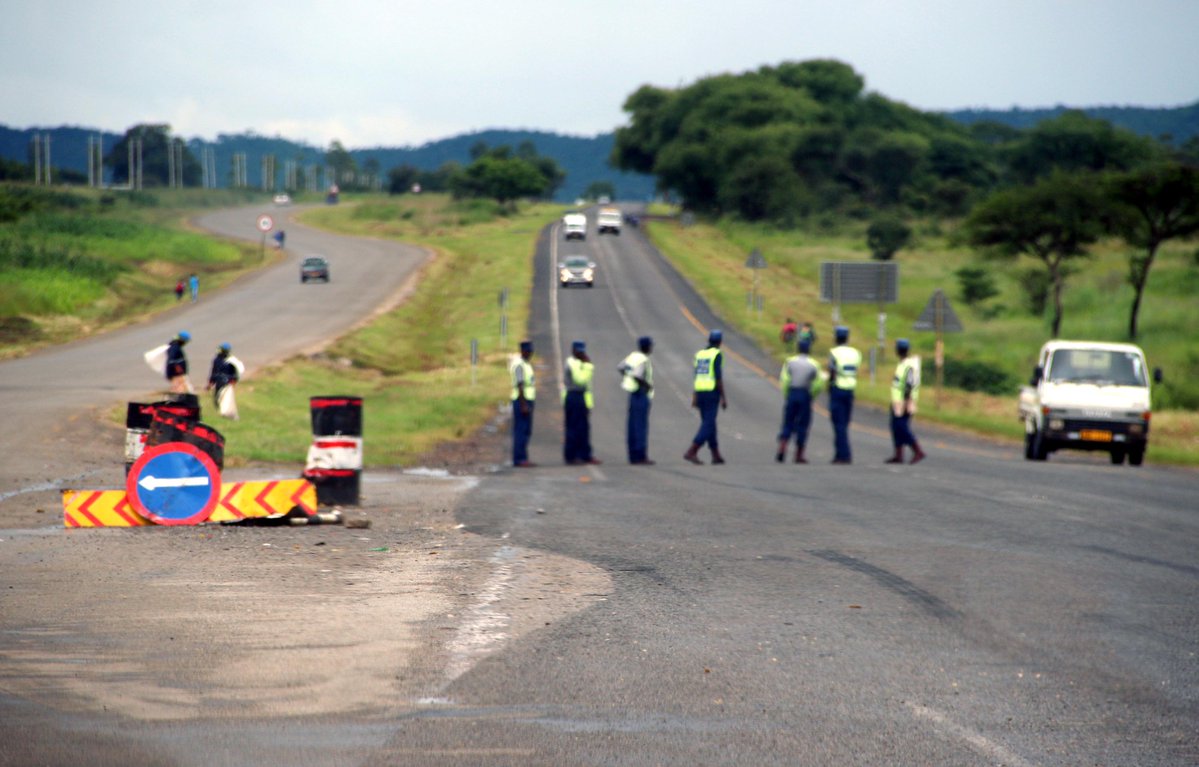The Zimbabwe Republic Police (ZRP) has raised alarm over a growing number of bogus officers setting up fake roadblocks and harassing motorists, particularly in Harare, amid mounting public concern over corruption and abuse of authority within the force.
The warning came during a meeting last week between senior police officials and Suthisa ilizwe-Gutsaruzhinji (Si‑G) president Sybeth Msengezi at Police General Headquarters in Harare. Si‑G is a non-partisan empowerment movement advocating for universal rights and addressing the country's long-standing socio-economic and political challenges.
Msengezi, in a letter to Commissioner‑General Stephen Mutamba dated July 23, accused police officers of engaging in extortion and harassment, particularly targeting pirate taxis and commuter omnibuses. He alleged that some officers conduct dangerous chases, creating chaos that endangers pedestrians, vendors, commuters, and property.
"Roadblocks, intersections and robots have become illegal revenue collection points," Msengezi charged. "Officers deliberately delay motorists, threaten vehicle impoundment and demand bribes, further burdening struggling citizens."
He gave the Commissioner‑General a 14‑day ultimatum to investigate the alleged abuse of power, discipline corrupt officers, and prioritise public safety over extortion.
In response, ZRP Deputy Commissioner‑General (Operations and Crime) Learn Ncube convened a meeting involving Msengezi, national police spokesperson Commissioner Paul Nyathi, Harare provincial commander Commissioner Chikunguru, and provincial spokesperson Inspector Luckmore Chakanza.
Nyathi confirmed the meeting, stressing that it was part of the police's engagement strategy. "We want to allow all Zimbabweans to air their views with us, share their experiences, and discuss ways to improve policing," he said.
Si‑G spokesperson Simba Muchero told NewsDay the organisation had documented numerous cases where officers recklessly pursued pirate taxis, causing injuries and property damage. He alleged such pursuits were often driven by bribe collection rather than law enforcement.
Police representatives acknowledged the existence of "bad apples" within the force but cautioned that corruption also involved public participation. "It takes two to tango. Citizens must expose corruption rather than participate in it," they said, noting that many corrupt individuals posing as police officers were in fact impostors.
Msengezi countered that public mistrust of the ZRP discouraged citizens from reporting misconduct. "Unless the people have confidence in ZRP, campaigns such as the citizens' charter are nothing but cosmetic make-up on an ugly face," he said.
He further criticised the location of certain roadblocks, claiming they forced illegal operators onto dangerous suburban routes and created opportunities for bribes. He cited corruption hotspots including Mbare, Whitehouse along Bulawayo Road, Glen View, Avondale, Mabelreign, Southerton, and N Richards along Bulawayo Road.
The meeting concluded with an agreement that all cases of corruption, extortion, and harassment should be reported directly to the ZRP Chief of Staff Internal, Samson Mudyamarime, for immediate action. The police also pledged to continue public awareness programmes and maintain open engagement with citizens to restore trust.
Si‑G agreed to work with the ZRP and local communities to address public concerns and promote responsible policing.
- Newsday
 OK Zimbabwe posts US$17,8 million loss
OK Zimbabwe posts US$17,8 million loss  Hichilema meets Chivayo
Hichilema meets Chivayo  Millions celebrate Diwali festival in India
Millions celebrate Diwali festival in India  Econet Zimbabwe to delist from ZSE
Econet Zimbabwe to delist from ZSE  Gold edges up as traders await guidance
Gold edges up as traders await guidance  Mnangagwa fires Chitando, appoints Polite Kambamura
Mnangagwa fires Chitando, appoints Polite Kambamura  Young Investment Professional (YIP) Graduate Programme 2019
Young Investment Professional (YIP) Graduate Programme 2019 











 Young Investment Professional (YIP) Graduate Programme 2019
Young Investment Professional (YIP) Graduate Programme 2019
Editor's Pick